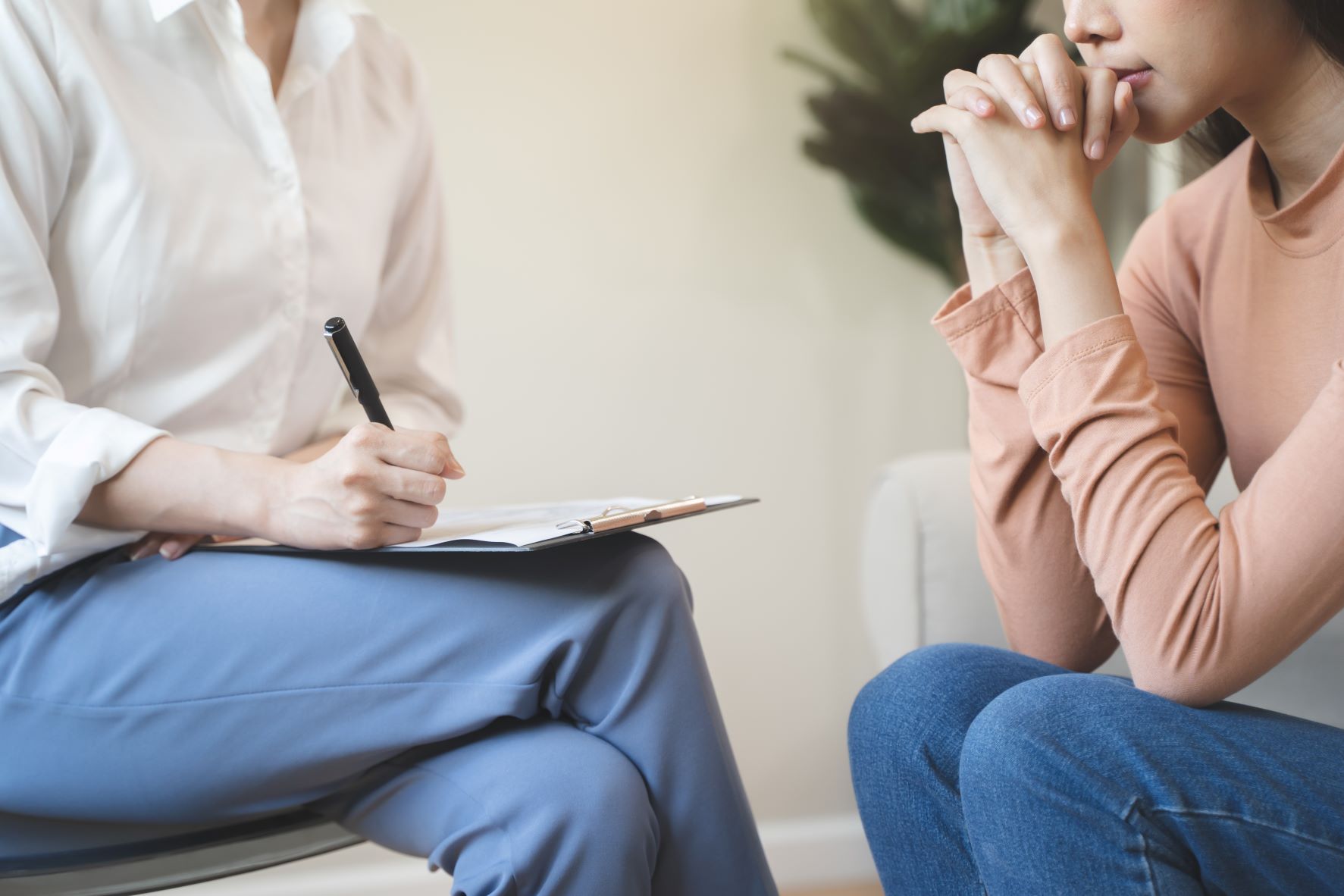Relapse Prevention Program
 A relapse is a return to drug use after a period of abstinence. Relapse occurs when an individual who has been abstinent from drugs or alcohol for a period of time begins using again.
A relapse is a return to drug use after a period of abstinence. Relapse occurs when an individual who has been abstinent from drugs or alcohol for a period of time begins using again.
Among Americans aged 12 years and older, 37.309 million were current illegal drug users (used within the last 30 days) as of 2020.
13.5% of Americans 12 and overused drugs in the last month, a 3.8% increase year-over-year (YoY). 59.277 million or 21.4% of people 12 and over have used illegal drugs or misused prescription drugs within the last year.
If you do relapse, it doesn’t mean that you have failed. It’s important to reach out for help and get back on track. A relapse prevention program can help you get back on track and avoid future relapses.
Relapse prevention is not about avoiding all high-risk situations. Rather, it’s about learning how to cope with triggers and cravings in a healthy way.
Table of Contents
ToggleWhat Are Some Reasons Why People Relapse?
The reasons people relapse can include:
- Boredom
- Stress
- Depression
- Anxiety
- Isolation
- Triggers
How Common is Relapse?
Relapse is common, but that doesn’t mean it’s inevitable. In one study, researchers found that 40 to 60 percent of people in recovery relapse at least once.

The stages of relapse can be divided into four categories:
- Emotional relapse
- Mental relapse
- Physical relapse
- Relapse
Emotional relapse is when a person begins to experience negative emotions, such as anger, anxiety, depression, or boredom. These emotions can lead to thoughts about using substances.
A mental relapse is when a person starts to think about using substances again. This may include fantasizing about using drugs or alcohol, making plans to use substances, or thinking about people or places associated with substance use.
Physical relapse is when a person actually begins to use substances again. This can happen after a period of sobriety or after a slip. Relapse is when a person returns to substance use after trying to quit.
Relapse is common, but it doesn’t mean that treatment has failed. In fact, relapse can be a part of the recovery process. It’s important to remember that relapse is not inevitable, and there are things you can do to prevent it.
The substance that a person relapse on can vary. It may be the same substance that they were using before they achieved abstinence or it could be a different substance entirely.
Relapse is more likely to occur:
- If the individual has been abstinent for a shorter period of time
- if they have a history of relapse
- If they are under stress
For example, over 30% of people who attempt to stop drinking relapse in their first year of sobriety. However, while the first years can be the hardest, the relapse rate does go down over time.
In one study:
- 21.4% of recovering alcoholics relapsed in their second year of recovery
- Only 9.6% relapsed in years three through five
- 7.2% relapsed after five years of recovery
What Is Relapse Prevention?
Relapse prevention is a set of tools and strategies used to help people maintain their sobriety. Relapse can affect anyone who is managing their substance use disorder.
Why Is Relapse Prevention Important?
Relapse prevention is important because it can help people stay sober and avoid the harmful consequences of relapse. Relapse can lead to:
- Hospitalization
- Job loss
- Financial problems
- Relationship difficulties
Relapse prevention can help people avoid these negative outcomes.
What Are Some Relapse Prevention Techniques?
Some relapse prevention techniques include identifying triggers, developing coping mechanisms, and building a support network. These tools can help people to stay sober and avoid the harmful consequences of relapse.
Here are some tips for preventing relapse:
- Identify your triggers: These are the people, places, things, or situations that make you want to use substances. It’s important to avoid these triggers or at least have a plan for how to deal with them if you can’t avoid them altogether.
- Build a support network: This includes family, friends, therapists, and 12-step groups. These people can offer you emotional support and help you stay accountable.
- Develop a relapse prevention plan: This is a specific plan that outlines what you will do if you start to feel like you’re going to relapse. It should include things like who you will call, where you will go, and what activities you will do.
- Practice self-care: This means taking care of yourself physically and emotionally. Eating a healthy diet, getting enough sleep, and exercising are all important for maintaining your recovery.
What Are Some Relapse Prevention Resources?
There are many relapse prevention resources available online and in communities across the country. Some relapse prevention resources include:
- Alcoholics Anonymous
- Narcotics Anonymous
- SMART Recovery
- Refuge Recovery
- Sober Recovery
- The Recovery Village
- Sobriety.com
- Sober Living America
- The National Institute on Drug Abuse
- The Substance Abuse and Mental Health Services Administration
If you do relapse, it’s important to remember that it’s not the end of the world. The most important thing is to get back on track as soon as possible.
The Stigmas of Relapse
The stigmas of relapse can prevent people from getting the help they need. There is a lot of shame and stigma surrounding relapse. This can prevent people from reaching out for help.
It’s important to remember that relapse is a part of recovery. It doesn’t mean that you have failed. You can get back on track with the help of a relapse prevention program.
How to Deal with the Stigmas of Relapse
To handle the stigmas of relapse, it’s important to talk about your relapse with someone you trust. This can help you process what happened and develop a plan to prevent future relapses. It’s also important to reach out for help from a professional if you’re struggling to cope with the stigmas of relapse.
A relapse prevention program can provide you with the support and resources you need to recover from relapse. If you or someone you know is struggling with relapse, don’t hesitate to reach out for help. A relapse prevention program can make all the difference in recovery.
What Is Chronic Relapse?
Chronic relapse is a pattern of relapse and remission that can last for years. Chronic relapse is often characterized by a lack of participation in recovery activities, such as 12-step meetings or therapy. Additionally, people with chronic relapses may feel hopeless and may not believe that recovery is possible.

What Are Some Ways to Prevent Relapse?
Relapse prevention is a form of continued treatment following successful treatment.
Within the continuum of care, a relapse prevention plan is often created during the final stages of treatment.
Relapse prevention plans typically include:
- Identifying high-risk situations
- Developing coping skills
- Building a support system
- Participating in recovery activities
Relapse prevention plans are important because they provide a framework for continued care and sobriety. Additionally, relapse prevention plans can help people identify high-risk situations and avoid them altogether.
Self-Care Tips to Prevent Relapse
Self-care is a crucial part of any relapse prevention plan. Relapse prevention plans should include healthy coping mechanisms and stress-reduction techniques. Here are some self-care tips to help prevent relapse:
– Get enough sleep: Sleep deprivation can increase stress levels and make it difficult to cope with triggers and cravings.
– Eat a balanced diet: Eating nutritious meals helps the body function at its best and provides the energy needed to stay sober.
– Exercise regularly: Exercise releases endorphins, which have mood-boosting effects. Additionally, exercise can help reduce stress levels.
– Take breaks when needed: If you’re feeling overwhelmed, take a few minutes to yourself to relax and rejuvenate. Taking breaks can help prevent burnout.
– Seek support: Whether it’s through a 12-step program or therapy, having a supportive network can help you stay on track.
How Does Harm Reduction Involve a Relapse Prevention Program?
Harm reduction is a set of practices or strategies used to reduce the harmful consequences associated with drug use. It is not abstinence-based but instead seeks to reduce the harm that can come from drug use.
Harm reduction approaches to relapse prevention seek to help people who are struggling with addiction to stay safe and healthy, even if they are still using drugs.
This may involve things like providing clean needles and syringes to help prevent the spread of diseases like HIV/AIDS, providing safe spaces for people to use drugs, and offering counseling and other support services.
Is a Relapse Prevention Program Covered by Insurance?
Relapse prevention programs are typically covered by insurance. However, it’s always best to check with your specific insurer to see what is covered. If you don’t have insurance, there are many resources available to help you find affordable treatment.
Indiana is the 7th cheapest state for drug residential rehabilitation services. In Indiana, there are 427 active drug rehab treatment facilities. 37,077 patients are serviced annually in Indiana for drug rehab.
Channel Your Sobriety with a Relapse Prevention Program at First City Recovery
Our relapse prevention program has been designed to help individuals in early recovery develop the skills they need to stay sober. First City Recovery offers a wide range of treatment options, including sober living.
We understand that addiction is a complex disease that requires a customized treatment plan in order to achieve long-term sobriety. First City Recovery is located in Kokomo, Indiana, and it is one of the most versatile recovery centers in the state.
You can be sure that you will receive the best possible care at First City Recovery. If you or someone you love is struggling with addiction, please reach out to us today. We are here to help!

MD, Psychiatrist
Dr. Vahid Osman, MD is a psychiatry specialist in Indianapolis, IN.
Dr. Osman completed a residency at Austin State Hospital. He has over 32 years of experience in Psychiatry & Behavioral Health. He is board certified by the American Board of Psychiatry and Neurology.




